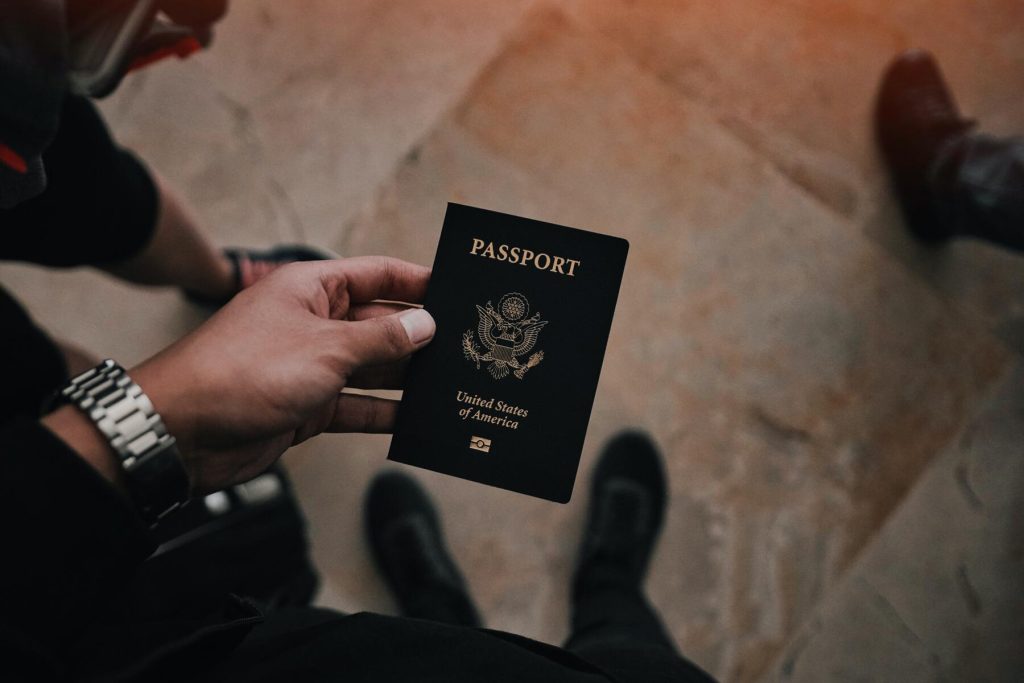The US passport ranks 12th in the 2025 Henley Passport Index, its lowest position ever.
The U.S. passport is less powerful in 2025 than it was last year, says an annual passport ranking report. The Henley Passport Index, which tabulates data from the International Air Transport Association (IATA), ranked the U.S. passport in 12th place for 2025 for affording its holders visa-free travel to 180 of 227 countries.
The ranking assigns places to multiple countries, meaning there are actually 36 countries on the list with passports that offer visa-free travel to more countries. In first place is Singapore, with 193 visa-free countries accessible to holders of its passport. South Korean was ranked second, with 190 countries, and Japan ranked third, with 189 countries. Most countries in the European Union are ranked next, with Canada, the United Arab Emirates, and the United Kingdom rounding out the top ten. The United States tied with Malaysia in 12th place.
The Henley Passport Index has been published since 2006. The United States ranked first in passport power that year, and also ranked first in 2014. 2025 marks the first time the U.S. passport has been ranked lower than the top ten. The previous nadir for U.S. passport power was in 2010, 2023, and 2024, when it was ranked 7th.
For the purposes of the report, Henley considers Electronic Travel Authorizations (ETA), such as those issued by Australia and New Zealand to be “visa-free travel.” Visa On Arrival (VOA) schemes are also considered visa-free. Countries that issue E-visas, which require an application to be approved before a traveler can board a flight, are not considered visa-free. Countries that offer visa waivers for short-term transits or group travelers were also excluded from being considered visa-free.
Continue Reading Article After Our Video
Recommended Fodor’s Video
More countries require a visa from U.S. passport holders in 2025 compared to previous years. U.S. passport holders lost visa-free travel to Brazil in April, and were not included on a list of 43 countries China waived visa requirements for travelers intending short touristic stays. The report also cited changes to visa policy in Papua New Guinea, Myanmar, Somalia, and Vietnam as contributing to pushing the U.S. passport out of the top ten rankings for the first time in the history of the report.
“The declining strength of the U.S. passport over the past decade is more than just a reshuffle in rankings — it signals a fundamental shift in global mobility and soft power dynamics. Nations that embrace openness and cooperation are surging ahead, while those resting on past privilege are being left behind,” said Dr. Christian H. Kaelin, the creator of the Henley Passport Index, in a statement accompanying the report release.
The report also noted that the UK passport experienced a precipitous drop in ranking compared with previous years.
Many countries structure visa policy on a bilateral agreement offering reciprocal access. The United States, however, denies reciprocal access to a number of countries that allow visa-free travel for U.S. citizens. While U.S. passports allow visa-free travel to 180 countries, only 46 nationalities can travel visa-free to the United States.
According to the Henley Openness Report, which tracks how many countries can travel to a country without a visa, the United States currently ranks 77th. Eleven countries in Africa, Asia, and Oceania share the top ranking in that report, each offering visa-free travel to 198 countries. Passport holders of 10 of the 11 countries must have a visa to visit the United States. The eleventh is the Federated States of Micronesia, which is in a compact of free association with the United States, allowing citizens of both countries the right to freely travel between them without restriction.
By contrast, China, once noted for its restrictive visa policy, now allows visa-free entry to passport holders from 76 countries, earning it the ranking of 65th on the Henley Openness Report.

